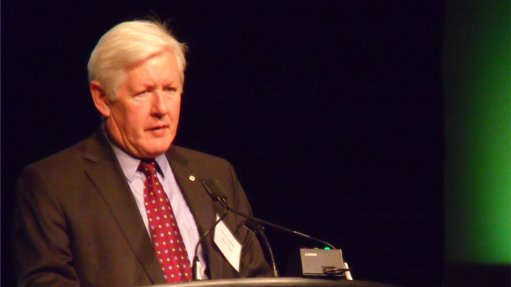
Bob Rae
Photo by: Simon Rees
TORONTO (miningweekly.com) – Former Premier of Ontario and chief negotiator for the Matawa First Nations Bob Rae told delegates at the Prospectors and Developers Association of Canada conference that greater efforts are needed to embed the practice of consultation and accommodation between the mining sector and Canada’s First Nations communities.
Equally, the First Nations must be able to provide answers when a company approaches to consult. “[The] First Nations have to ask themselves: ‘what shall we say when we‘re asked our opinion? What do we say when we’re consulted?’” Rae said on Tuesday. “It’s not easy, but it is essential.”
Rae acknowledged that the duty to consult and engage still has many imprecisions, often because the foundations of best practice continue to be solidified, frequently through the court system. “People say: ‘what does it mean that there’s a duty to accommodate and consult? How, why does it [work]?’ … As frustrating as that is, these issues are still going to be litigated. It’s still a contested area of the law,” he said.
Fitting into this, both federal and provincial governments should work towards strengthening and streamlining the framework that facilitates accommodation. “Governments must create a process that helps to define, for companies and for First Nations, exactly how the process of accommodation is supposed to take place. What is the discussion? How is it supposed to happen? How do we make it happen?” he said.
In many instances, a change in mindset is required within various government bodies and departments, particularly those involved in Canada’s far north, to consider First Nations communities as partners in progress, not just as stakeholders.
In addition, provinces that have historic treaties with the First Nations would do well to examine those provinces that do not, such as Quebec and British Columbia, and examine how they have often been able to push through changes at a faster and often more dynamic pace.
“Where is revenue sharing today? It’s happening in Quebec, in British Columbia, the Yukon, the Northwest Territories, and it’s happening in Nunavut. Why? Because they can improvise and they can create change, and they can make change happen,” Rae said.
“The institutional resistance to change … in the treaty provinces is a particular challenge,” he said. “It’s a challenge we’re facing in the Ring of Fire and a challenge we’re going to face in a number of other [areas] as time goes on.”
In considering the Ring of Fire, Rae stressed that the focal points for discussion will continue to centre on the wellbeing of aboriginal communities, the environment, infrastructure and revenue sharing. “Those are going to be the critical areas of discussion that are going to be addressed,” he said.
“[This will] allow for some precedent-setting approaches, which I hope will be helpful for other jurisdictions,” he added.
“There is no other route but that of creating sustainable partnerships,” he concluded. “The alternatives are simply lousy: spending your life in court, which is not good for anyone.”